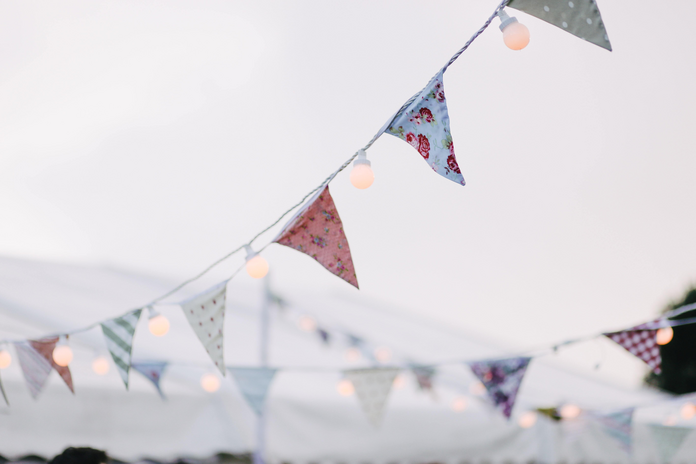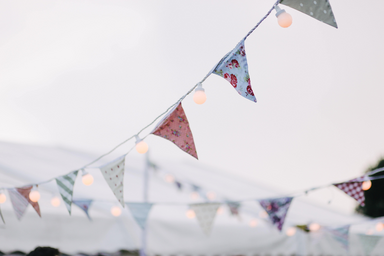Puerto Rico was hit by two category 5 hurricanes. After 107 days without electricity and unstable accessibility to water, I’m finally able to share my story. This is unlike most stories, considering that taking a DNA test to investigate your ancestry and ethnicity isn’t an everyday task, but it’s something I’ve wanted to do for years. After Ancestry.com© finally offered a discount on their Ancestry DNA tests, I bought one as fast as I could. Also, quick disclaimer: this is not a sponsored post! It’s just something I’ve been wanting to do for a while.
When my package arrived, the instructions had to be followed, which included spitting in a test tube (Ew, I know…), creating an online account, and sending the package back to their headquarters.
During the time I waited for my results to arrive, I started to overthink about the decision I’ve made… wondering if I’d be disappointed with my results. I was scared to find out if I’m not “Puerto Rican”.
This term is quite relative, considering that there is no single, exact race of Puerto Rican, nor an exact definition of how a Puerto Rican should be. Furthermore, race is a construct; humans are not genetically diverged enough for each skin color or region to be considered aa biologically individual race. Since I was a child, and I believe as most children have learned, Puerto Ricans are the homogeneous mix of European Spanish, African, and Taíno (the indigenous people of Puerto Rico) heritage. For many years I believed that as well and I had hope in having all three in my blood. But those hopes were overshadowed by doubt due to my appearance: fair skin, green eyes, and mainly European features. Even though I am not ashamed of the way I look, at first glance, I usually don’t strike as “Puerto Rican”, and that’s what most people told me. This was hurtful because I carry my identity with pride, care, and happiness, yet I wasn’t seen as that. It also made me realize the extent of how stereotypes were used as a foundation of our identity, and I took part in that as well.
I was torn between deciding to not dwell on those thoughts, and seeing what my ethnicity really is to silence my questions and doubts. Eventually, I chose the latter, which led me to the day I got my results. When I read the email notification informing me that my results were ready to be seen, I took a deep breath. My results came out to be:
- 40% Iberian Peninsula (Spain and Portugal)
- 20% Southern Europe (Italy and Greece)
- 19% Western Europe (primarily France, Belgium, Germany, Netherlands, Switzerland, Luxembourg, Liechtenstein)
- 6% Native American
- 6% North Africa
- 5% Great Britain
- 1% Middle East
- 1% Senegal
- <1% Africa South-Central Hunter-Gatherers
- <1% Ireland/Scotland/Wales
I was extremely happy to see a percentage of African and Native American, even if it’s not much. I just wanted proof that it’s there. The results made sense to me, considering that my mother and father’s side of the family emigrated from Spain about five or six generations ago, and I was told of Italian and French influence on my mother’s side of the family. It was amazing to see it all in front of my eyes, the unfolding of my family history: years of hard work, migration, stories to tell, and memories to pass down. I was shocked to see a percentage of Great Britain and the Middle East, considering that I don’t know of any of my ancestors that came from there. It made me wonder how their journey must have been like, how they met someone and continued a family line and leads to my sister, my brother, and me. After analyzing all the results, I was satisfied to see that, technically, I am Puerto Rican.
I had to keep in mind that these results were an estimate, so there is a possible margin of error and a lack of extremely accurate numbers. Yet, that did not take away from my feeling of relief. Even though I felt that way, I also felt almost foolish for depending on numbers and percentages to prove my Puerto Rican identity. The way I speak, the way I walk, the way I act in social interactions, the food I eat, the music I listen to, and the way I feel can’t be measured in numbers. Going back to the beginning, there isn’t an exact Puerto Rican race, just a melting pot of different races, cultural influences, and ethnicities that have dwelled on the island for many years. Even though Spanish, African, and Taíno heritage are predominant, we shouldn’t exclude Asian (mainly Chinese and Indian), European (from other nations such as Germany, Ireland, and Scotland), and other multiracial heritages as well. The beautiful part of it all is that we are all Puerto Rican no matter what. I realized that I already knew that… all I needed was a little push to get rid of my insecurities and doubts, which turned out to be the DNA test results. More than a socio-cultural analysis, this was a journey of self-love. I know that I still have a long way to go.
Our experiences living through the disaster and aftermath of the hurricanes was proof to me that being Puerto Rican is so much more than just a skin color, a hair texture, and a body type. It is being the epitome of strength, resilience, hope, hard work, faith, companionship, and happiness. It is the smell of garlic and sofrito hitting the oil in a hot pan, the sound of salsa music in a car that passes by, the light drizzle of rain every morning as the sun shines, the kiss and hug you give someone when you greet them (even if you see them every day), the shouts of excitement, when the sky and the sea meet, the rolling of |r| and the aspiration of |s|, the “¡ay bendito!”, the beats on your chest due to the bass in reguetón, and so much more.
Photo by: Elias Nuñez
I don’t regret taking the DNA test because it serves me as a guide to build my family tree and discover the stories of my ancestors. It also taught me to never define my identity by stereotypes and commentary. Although it answered my questions and gave me the information I could not find out by myself, our Hispanic heritage surpasses what numbers try to limit. In times of hardship, we have to stay strong and take pride in our culture, our language, our essence, and its diversity, yet we have to be open and inclusive because, at the end of the day, we are all one human race.


